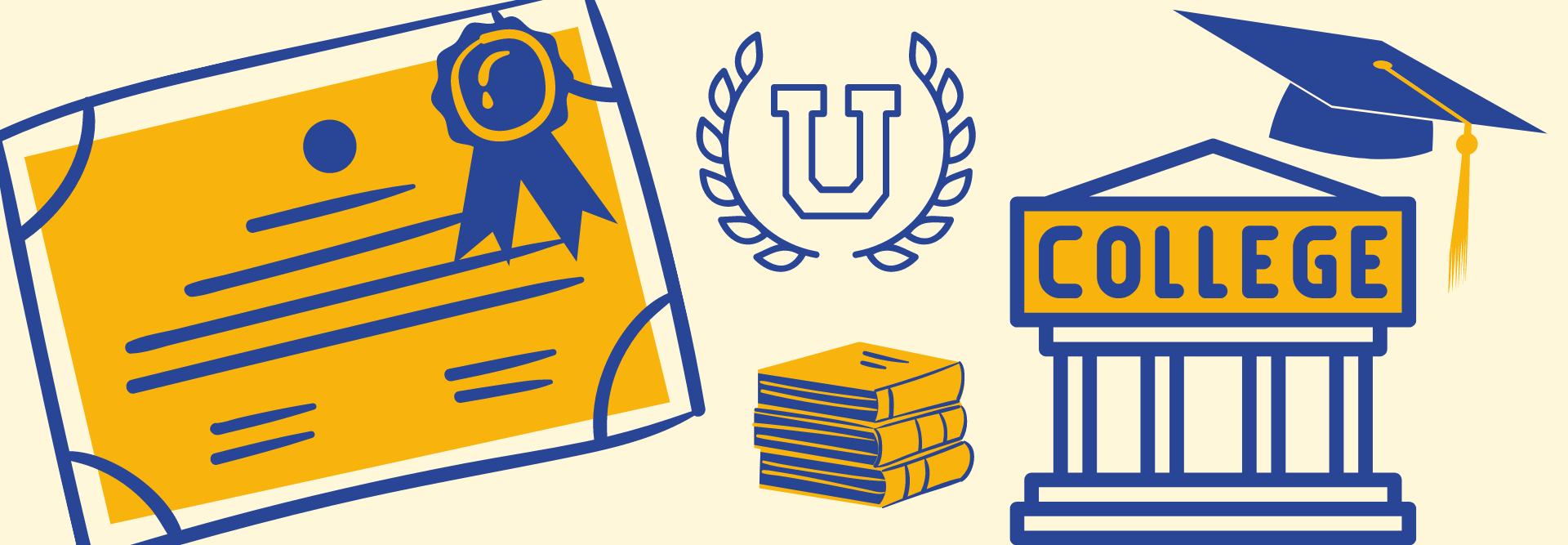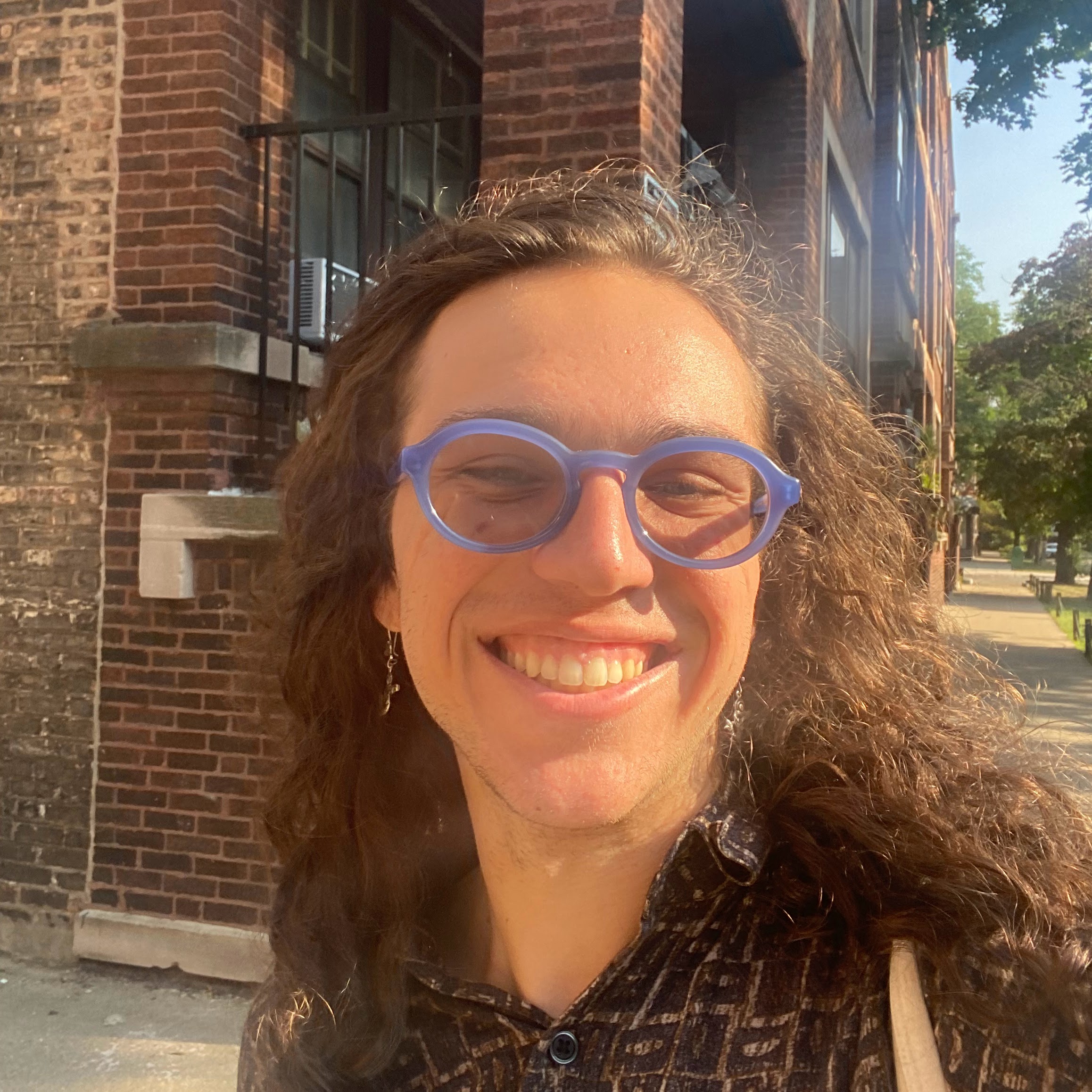This is Part One of a two-part College/Higher Education for Self-Directed Learners series.
Part One is a personal story by Ruben Whitaker about deciding whether to pursue higher education after growing up as a self-directed learner. It also gives some guiding questions that might help other undecided unschoolers figure out their next step.
Part Two is a Higher Education Resource Directory specifically for unschoolers and self-directed learners. It explores making the decision whether to attend college or not, how to choose one, the application process, how to keep your self-directed values in college, and more. Find Part Two here.
Introduction
Note: The acronym “SDL,” meaning Self-Directed Learner, will be used in this article to encompass all the Unschoolers, Free School students, Homeschoolers, etc for simplicity.
Last Summer, 2023, I junior-staffed at Not Back to School Camp, a camp for teenage unschoolers, at their Vermont session which I attended as a camper in 2019. At camp, we had workshops every day led by both campers and staff, on any topic one could imagine from paganism to polyvagal theory. As I was pondering what workshops I wanted to offer, I thought that a lot of campers might be thinking about the possibility of college or other higher education options. As an unschooler who then was about to go into in my senior year of college, I thought maybe having a discussion/Q&A type of workshop about applying and attending college could be helpful. I mentioned it at our daily meeting to gauge if there was interest and people seemed very enthusiastic, so I went ahead with the idea. There ended up being a great turnout, and everyone asked a lot of wonderful and important questions. When I approached the Alliance for Self-Directed Education about interning for them this past winter, I mentioned my experience with my workshop last summer and the need for a compilation of college-specific resources for SDLs on the Alliance’s website. Luckily my idea was met with openness and enthusiasm, which is why I wrote this article and directory. In this article, I will share a bit about my own path to college and my experience, talk about the advantages and disadvantages SDLs face when applying to college, give an overview of the directory outlining the broad topics within it, and finally, share my reflection on college and unschooling’s relationship with each other, covering both the similarities and points of contention.
My story and choice to attend college
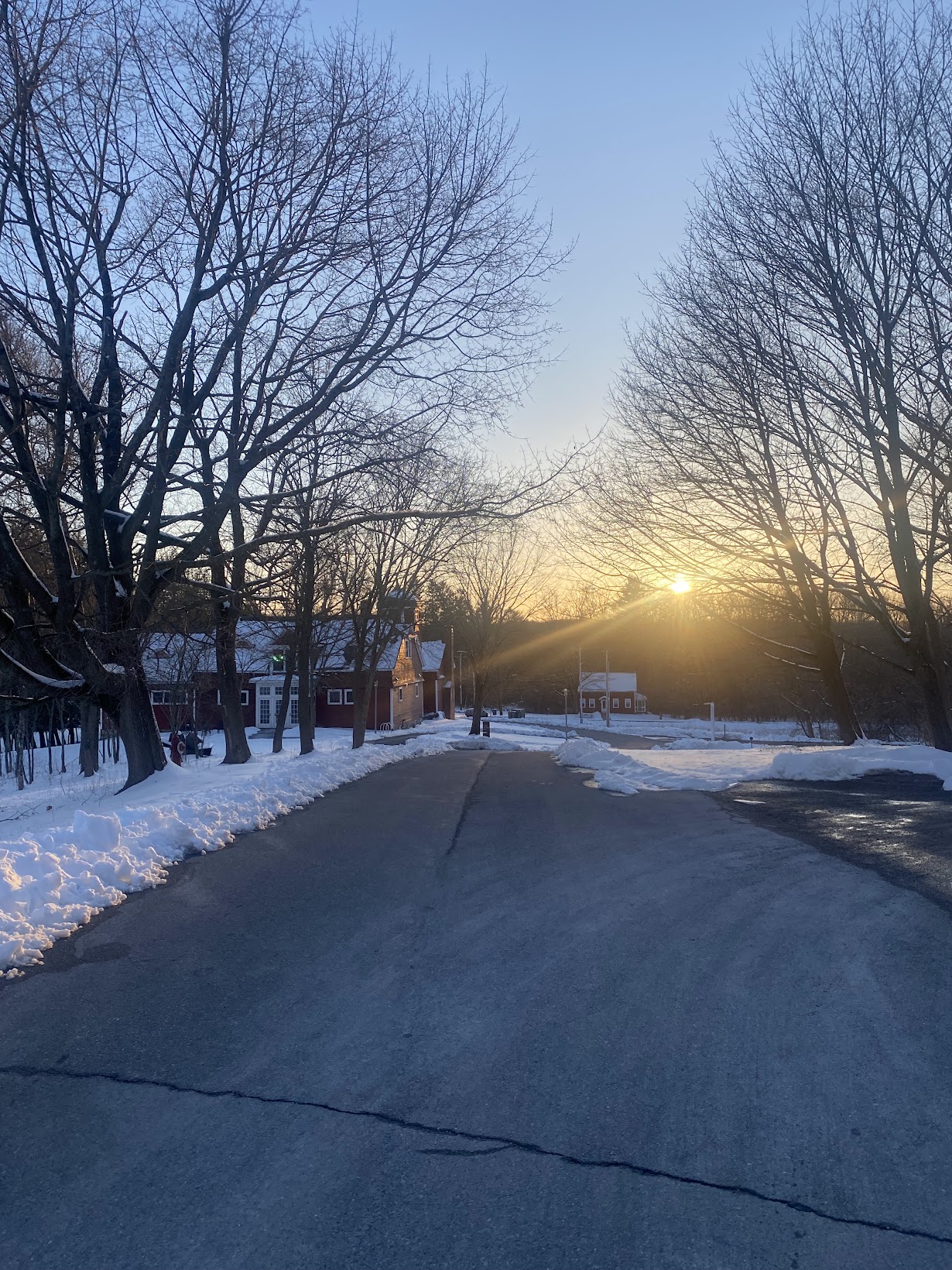
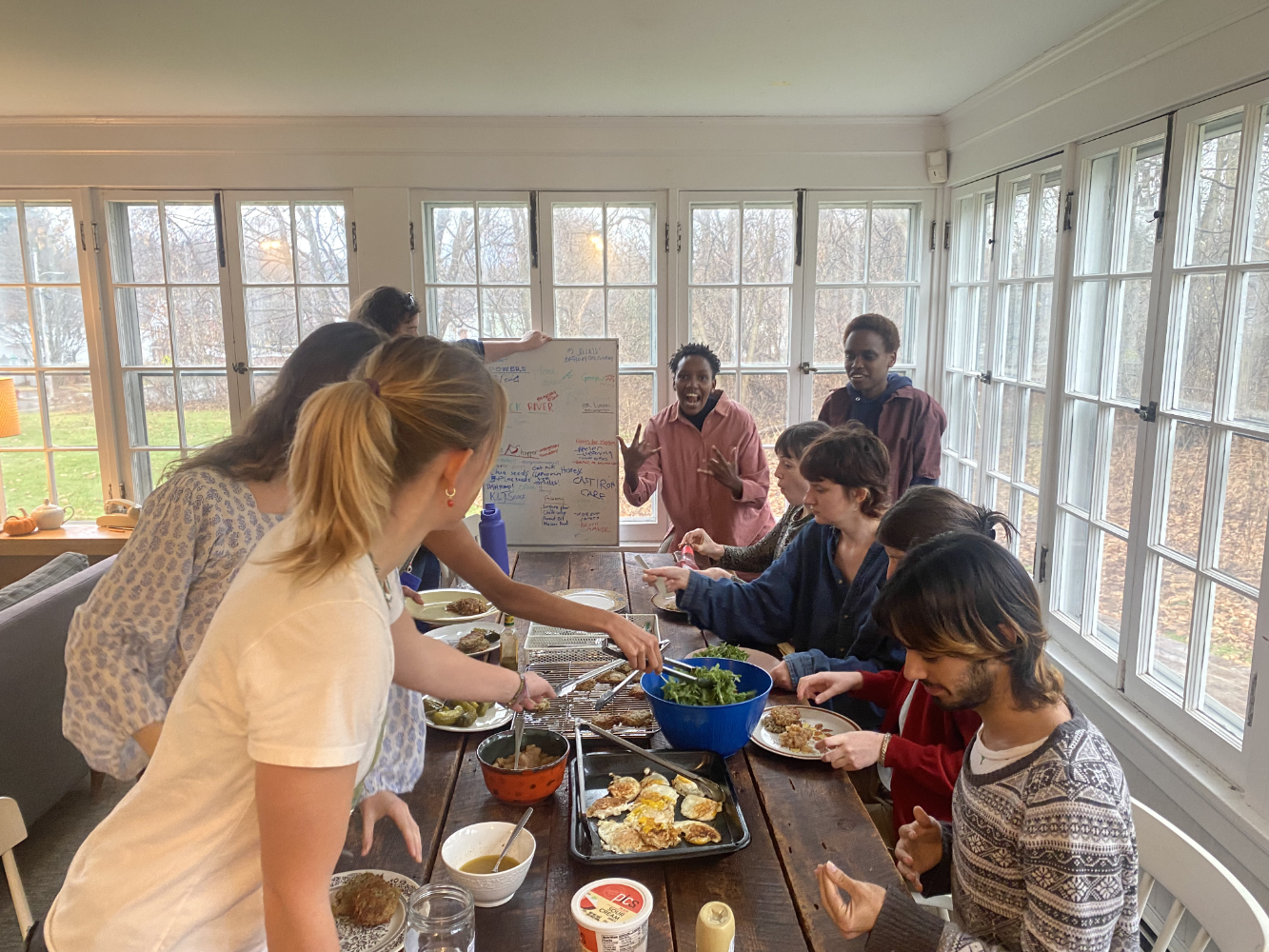
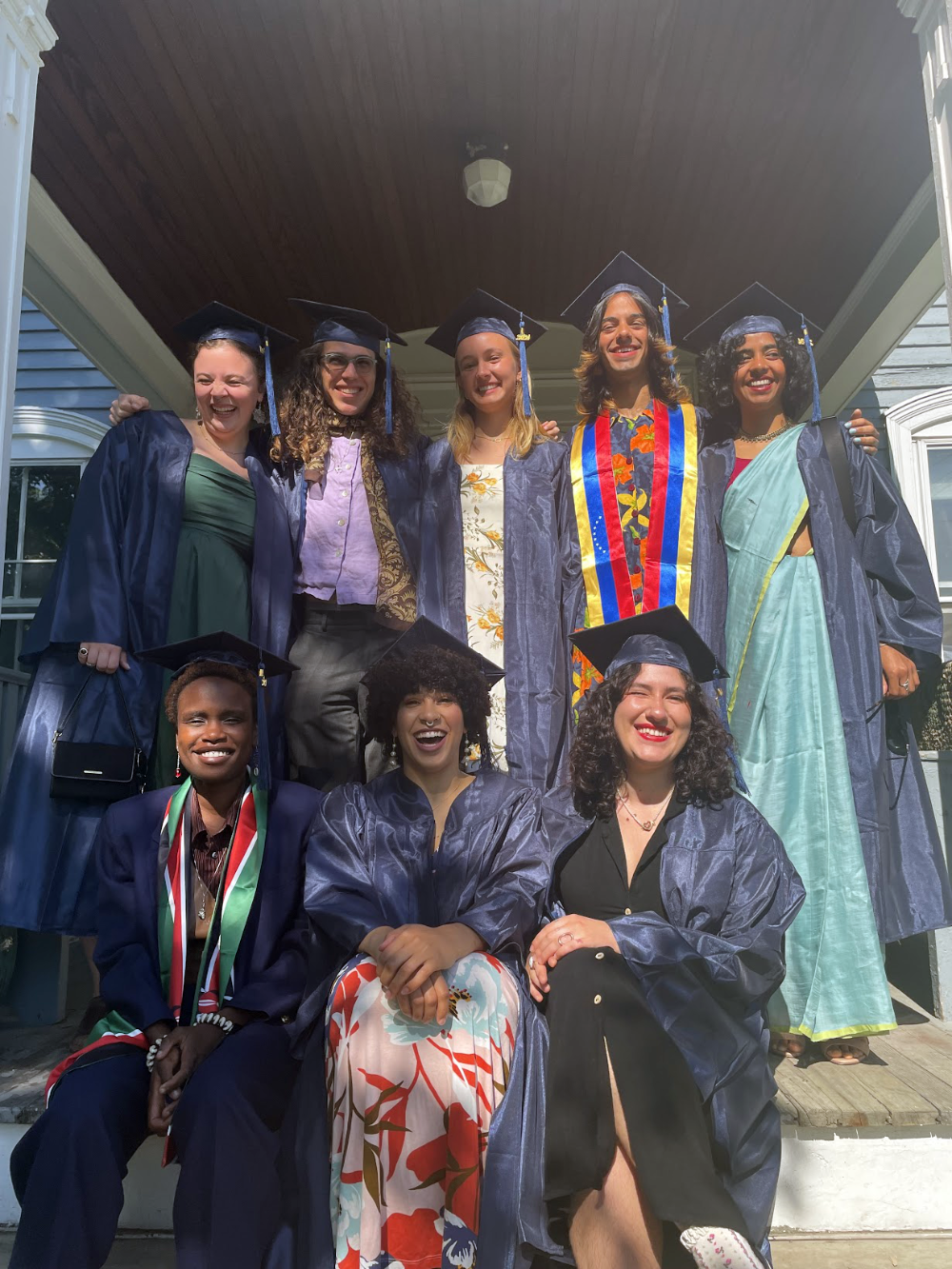
Decisions, Decisions
College can provide many opportunities, but at the same time it isn’t the path for everyone, and there are many paths one can take in pursuing higher education. I am lucky enough to know many adults in my life who both attended and didn’t attend college and live fulfilling and meaningful lives. Don’t let anyone tell you there is one way to do anything, let alone college or higher education. There are endless possibilities. Choosing whether to attend college or not is a big decision that takes a lot of contemplation, and if one does choose to attend, applying and choosing one’s school can be stressful, tiring, and overwhelming, but also exciting and fun. A few questions to ponder that could help in making the decision are:
- “What am I interested in and is college the best way to pursue these interests?”
- “What type of resources do I need to study what I am interested in?”
- “Is there a career or field I’m interested in that requires a degree?”
- “What type of experiences do I want to have as a young adult both academically and socially?”
- “How will I pay for it?”
- “What type of environment do I want to learn in? Hands on? Big Lectures? Small Classes?”
- “Where do I want to be geographically close or far from home?”
Being an SDL has advantages and disadvantages when it comes to applying to college. Advantages are plentiful, such as, SDLs usually already know what their interests are, and may have had more time than a young person in school to focus on their application. They also can attend community college at high school age, which allows them to get acquainted with college assignments, culture, ideas they may want to dive deeper into academically, and obtain a transcript, which is very useful if transferring to a four-year university. Some disadvantages SDLs face are not having access to resources that a person would get through school, such as a college guidance counselor, needing extra materials for their applications, writing an independent transcript in schoolish language that meets state requirements in certain subjects, and also generally facing the stigma of being an alternatively educated person applying to college. It’s important to acknowledge though that the gatekeeping of knowledge around higher education goes beyond whether one is in school or not. Class and social privilege play a big part in the accessibility of this information. Although one could argue that equitable higher education is becoming more common, we must also acknowledge that some schools still have legacy admissions, rooted in white supremacy, as well as the rising cost of higher education. This has left many with enormous student loans, tiring jobs, as well as a lack of resources during college that are available to those who have the financial privilege. My goal for this resource directory is for it to serve as an accessible resource for SDLs, that can help young people feel empowered and informed about applying to college as well as choosing a college that is the best fit for them. I hope this document can serve as a tool of liberation in making information accessible and less intimidating, as well as clear up any myths about going to college as an SDL.
The guide
Feel free to use this guide in whatever way you want! It’s not step-by-step, but there is a bit of chronology one may want to consider. Skip around, check out the resources that most interest you, or ones that cover topics you’re curious about, but don’t have much understanding of. The guide is split up into seven sections to help you get an understanding of attending college as an SDL. The first section, “General Guides on College for Self-Directed Learners,” has links to books and articles that are more in-depth guides on applying to college as an SDL, these resources can be good starting points in your research. The second section, “Common Paths,” is about some different options SDLs can take when it comes to college, whether that be community, four-year, or a combination of the two. The third section, “Great ways to see if college is right for you,” is a collection of actions you can take such as visiting and talking to friends and family to help you get a feel of what college is like and help you see if it’s the right path for you. The fourth section, “Choosing a college,” has collections of lists of colleges that may be more appealing or welcoming to SDLs such as liberal arts colleges or alternatively structured colleges. The fifth, “Application Process,” outlines the application process and the types of materials one needs in applying to college, as well as a few educational resources on paying for college. The sixth, “Keeping your self-directed values in college,” outlines ways you can keep being a self-directed learner in college, as college can be a stark departure from the world of self-directed education and autonomy over one’s learning. The final sections, “Grad School and Beyond” and “Higher Education Outside of College” highlight some awesome non-college higher education options that one can pursue instead of college, in addition to, or after.
Reflections on the relationship between College and Self-Directed Education
The college experience is one that can be very different depending on the school and I think some are more amicable from an unschooling perspective and some less so. The amount of autonomy one has over their learning is much more than most K-12 schools, but there are limitations. College on the one hand can allow you access to a tremendous amount of resources, such as biology labs or giant library databases. Professors can help facilitate your learning and connect you with concepts, people, and skills. Being in an environment with collaborators and people who are learning with you, and also are interested in what you’re interested in is a great experience, and can lead to friendships and beautiful collaborations. This can especially be exciting if you’re interested in a field that’s a niche, for instance, if you’re interested in Anthropological Linguistics or 20th-century Central Asian literature, it can be challenging to find other people in your everyday life to talk about it with. At the same time, college is still school, and academia is filled with bureaucracy, narrow-mindedness, gatekeeping, unreasonable amounts of work, syllabi that are time inefficient leaving students crunched for time during midterm and final projects, grades, extra fees, and administrations that prioritize profit over people to name a few. These negatives can have a profound impact on your mind and body, and even lead one to internalize some of the unhealthy habits and values in academia. I personally have struggled with this quite a bit, but I try to come back to the knowledge and values I have learned being an unschooler. There are many incredibly qualified and intelligent professors at college, but I have found that I have learned just as much from my peers and the experiences I have outside of the classroom. One does not need a classroom or a lecture hall to learn. Every single human has a multitude of unique experiences and knowledge that we carry around with us that we can share with the world. Our environments present endless learning opportunities, some of which may be a necessity to inquire and some by our own choice. Some of the most fascinating and impactful things I have learned during these years at college have been through conversations with friends and acquaintances, whether it be hearing about a friend’s culture or art practice, or simply learning a recipe from them. I have also learned how to be a better friend, how to live in a cooperative community and cook for 14 people. I have learned things that have been incredibly hard, like, what to do if you hit a deer on the road or what to do if you have a bad roommate. I experienced what it’s like to live in a different state, as well as living in a rural area. I have deepened my understanding of what it means to lead a band, organize shows, and most importantly, how to communicate ideas and assemble them. These experiences have led to tremendous growth within myself, and I have also seen tremendous growth within my friends. Remembering that it is you who facilitates your learning, not an institution, is a powerful affirmation and virtue to live by. College is one of many ways that one can aid their learning, and I wish everyone reading this the best of luck on their paths to higher education.
If you enjoyed this article and feel called to give back to ASDE, here are ways you can support our work:
- Donate money
- Share our content with others! Click one of the buttons above to easily share on Twitter, Facebook, or email.
- Consider becoming a Contributor for Tipping Points
Tipping Points Magazine amplifies the diverse voices within the Self-Directed Education movement. The views expressed in our content belong solely to the author(s). The Alliance for Self-Directed Education disclaims responsibility for any interpretation or application of the information provided. Engage in dialogue by reaching out to the author(s) directly.


